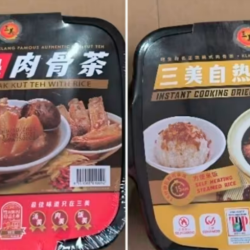UPDATE 1-Vietnam PM urges Trump to take objective view in trade dispute
(Updates with DFC and central bank statements in paragraph 8)
HANOI, Oct 26 (Reuters) - Vietnam's prime minister Nguyen Xuan Phuc said on Monday the country's exchange rate policy was not aimed at helping its exports and asked that U.S. President Donald Trump have "a more objective assessment of the reality in Vietnam".
The U.S. Trade Representative (USTR) said earlier this month that under Trump's direction, it was opening an investigation into whether Vietnam has been undervaluing its dong currency and harming U.S. commerce.
"If the dong is devalued, it would seriously hurt the economy," Phuc told Adam Boehler, head of the U.S. International Development Finance Corporation (DFC), in Hanoi on Monday.
"Vietnam is not using exchange rate policy to create a competitive advantage in international trade."
Vietnam has been on Washington's watchlist of currency manipulators because of its trade surplus with the United States, a large current-account surplus and a perception that its central bank has been actively buying foreign currency.
The U.S. Treasury in August found that Vietnam's currency was undervalued in 2019 by about 4.7% against the dollar due in part to government intervention.
Phuc asked Boehler to tell Trump and the USTR to "have a more objective assessment of reality in Vietnam" with regard to the trade imbalance.
The DFC said Boehler was in Vietnam to "discuss a broad spectrum of opportunities". On Tuesday, the deputy governor of Vietnam's state bank told USTR officials that it "operates within the framework of international monetary policy".
Vietnam's trade surplus with the United States, widened to $44.3 billion in the first nine months of this year from $33.96 billion a year earlier, according to Vietnam's customs data.
The U.S. Treasury Department is unlikely to release its long-delayed semi-annual report to Congress on international currency manipulation until after the U.S. presidential election on Nov. 3, a source familiar with the matter said on Friday. (Reporting by Phuong Nguyen; Editing by Martin Petty and Ed Davies)






